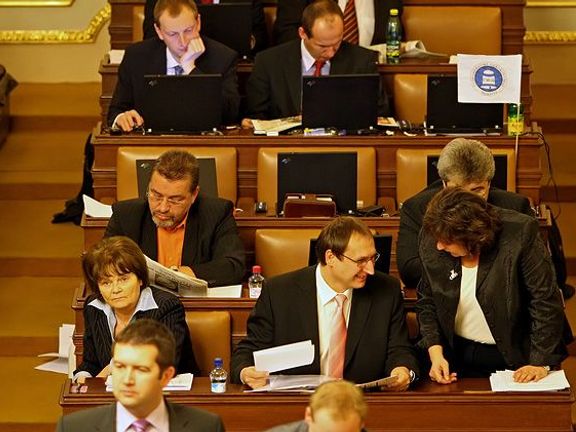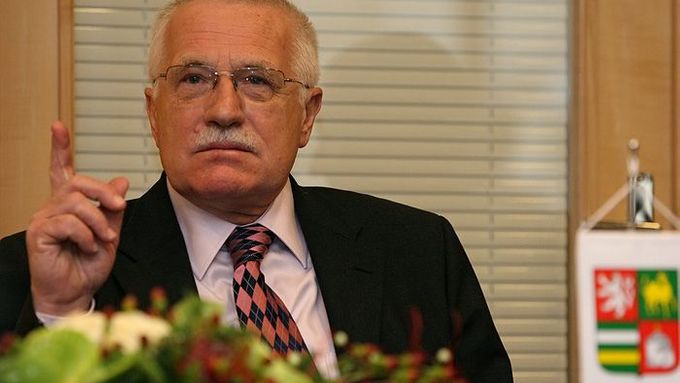
Prague - True to his own beliefs. That's what the incumbent president Václav Klaus would like to be if elected for the next five years.
Václav Klaus reasserted his conservative credentials in a television interview on the eve of the presidential elections to be held on Friday, February 8.
Speaking about his possible second term in office, he firmly rejected a chance of appointing a government directly or indirectly supported by the Communist Party (KSČM).
"I would act in the same way I did in past," Klaus responded to a question about the potential Communists´ participation in the government.
In spring 2005, President Klaus hampered the intention of the then Prime Minister Stanislav Gross (Social Democrats) to form a minority government that would have depended on an unspoken agreement with KSČM.
President Klaus made this resolute statement despite the fact his possible re-election may depend on the communist lawmakers' votes.
Euro? Useless
Klaus defended his anti-euro stand with equal determination.
According to him, for example, the Czech Republic won't need euro in the next few years. "Currently, it is needless for us," he said. "Even if we were surrounded only by eurozone countries, I don´t see why we would need euro."
If elected, Klaus could hamper the Czech Republic's admission to the eurozone by appointing a person with anti-euro bias as the head of the Czech National Bank (ČNB - the central bank of the Czech Republic).
Until the end of February, in other words still during his presidential term, he can appoint a new vice-governor of the ČNB to replace outgoing Luděk Niedermayer.
Although Klaus refused to disclose who is likely to be appointed, he admitted that his chief of office Jiří Weigl or a ČNB expert Vladimír Kolman would be suitable candidates.
Caught in the act
Jiří Weigl recently made headlines as he met Miroslav Šlouf, a former communist official who used to be one of the most influential men in late 1990s, having served as an advisor to former Prime Minister Miloš Zeman (Social Democrats). Later he was asked to leave the party because of his contacts with the mafia underworld. He was also suspected of conspiracy to commit murder.
The video of the meeting between Weigl and Šlouf was first published by Aktualne.cz.
Being asked about this, Klaus denied that he had entrusted Weigl with the task to talk to Šlouf to secure votes of some Social Democrats for him. However, he admitted that he would be thankful to everyone who would ensure even one single vote for him.
"I am getting less and less nervous as the election approaches," confessed Klaus. "The die is cast, so to say, and not much will change by Friday."
Klaus also said he is calm in spite of knowing that some lawmakers of the Civic Democratic Party, which he co-founded, may vote for his opponent Jan Švejnar. Not even the alleged list of Social Democratic lawmakers willing to vote for him upsets him; he considers the list a fake.
Fight for the undecided
On 8 February the two houses of parliament - the Senate and the Chamber of Deputies - will convene to elect a new President. The incumbent president Václav Klaus has been nominated by the ruling Civic Democratic Party, while his challenger Czech-American economist Jan Švejnar has been nominated by the Social Democratic Party having won full support of the Greens.
At the moment the two candidates are fighting for votes of undecided electors (around 40) who still happen to be largely among the Christian Democrats (of the governing coalition), the opposition Communists and independent senators.
Some Civic Democrats as well as Social Democrats are said to be willing to vote for the opposite candidate than their party supports, which contributes to the already heated up atmosphere.
